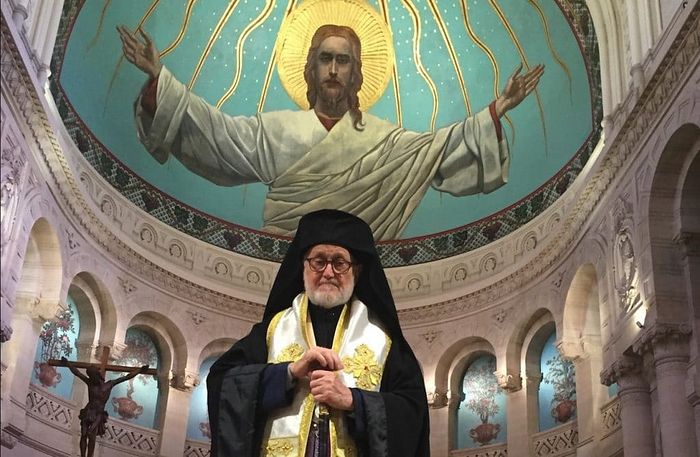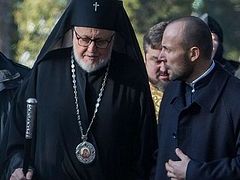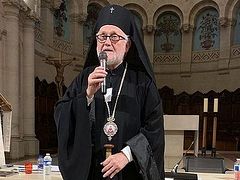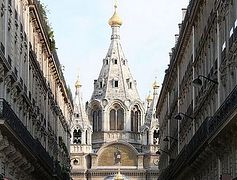Moscow, September 14, 2019
The Archdiocese of Russian Orthodox Churches in Western Europe has had a windy history since its creation by St. Tikhon of Moscow in 1921. At various times over the past century it has belonged to the Moscow Patriarchate, the Russian Orthodox Church Outside of Russia, and the Patriarchate of Constantinople, and at times it has been an independent structure.
Most recently, the Archdiocese was an Exarchate under the Patriarchate of Constantinople, until the Holy Synod suddenly revoked this status without warning in November, instructing the parishes to move under the local Greek-tradition Metropolitans. However, the Archdiocese voted overwhelmingly to remain together as an ecclesiastical body and thus it began discussions and negotiations of how to move forward.
Most recently, Constantinople pulled another surprise move and released the Archdiocesan hierarch His Eminence Archbishop John of Chariopoulis, although he had never requested a canonical release. At the General Assembly held a few days later, on September 7, the Archdiocese voted 58% to join the Moscow Patriarchate, which offered to receive the Archdiocese in whole, with its liturgical and administrative traditions intact, though the statutes require a 2/3 vote.
Nevertheless, both the Archdiocese and the Patriarchate of Moscow announced today that the Abp. John has been received into the Russian Church, and that any parishes and clergy wishing to follow him are welcome.
The Holy Synod considered Abp. John’s appeal today in which he announced the desire of the majority of the clergy and parishes to preserve the Archdiocese’s existence by joining the Russian Church and asked to enter the jurisdiction of the Russian Church.
Abp. John also said that a meeting of representatives from those parishes would be held in the near future and they would send their proposals on the canonical form of their organization to His Holiness Patriarch Kirill of Moscow and All Russia and the Holy Synod.
Having discussed the appeal, the Holy Synod resolved to receive Abp. John with the title “of Dubna,” a town in the Moscow Province, and all of the clergy and congregations under his leadership who express the desire to join as well. Abp. John will continue to manage all such churches.
In the communiqué on the Archdiocesan website, Abp. John writes that since the sudden removal of Exarchate status, he never ceased to protect his communities from “canonical subjection” at the hands of the Patriarchate of Constantinople.
“We have worked tirelessly, but in the wake of a General Assembly on September 7, which left us in a state of limbo over the violence and destructive force of some of us, we must, I think humbly, acknowledge that we have been misguided,” the hierarch writes.
Abp. John notes that the matter at hand, of which jurisdiction to be a part of, is a pastoral, not legal matter, and that the Archdiocesan statutes do not address whether a General Assembly can decide on canonical attachment. The Assembly can change the statutes, he writes, but not settle a pastoral question such as canonical attachment.
In the end, this is the hierarch’s heavy responsibility, he continues.
He then recounts the many twists and turns of the Archdiocese’s history, including the most recent sorrowful decisions of Constantinople, stating firmly: “These decisions have led us irrevocably to seek a way to put an end to the dangerous peregrinations imposed by the Ecumenical Patriarchate. And they made us take charge of our future and entrust me, as in the past to Metropolitan Evlogy, with the heavy responsibility of guiding you.”
In the end, the Moscow Patriarchate is the only jurisdiction that offered to the receive the Archdiocese as a whole, Abp. John emphasizes, recalling that the Archdiocese had voted by 93% to remain together. Thus, his responsibility to this mandate led him to seek a canonical home in the Russian Church.
Abp. John thus decided to place himself and the Archdiocese under the spiritual care of the Russian Church. He writes that he will commemorate Pat. Kirill tomorrow and he invites all the clergy to continue to commemorate him.




